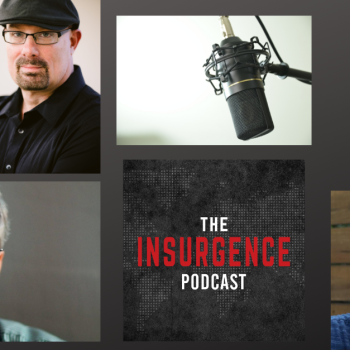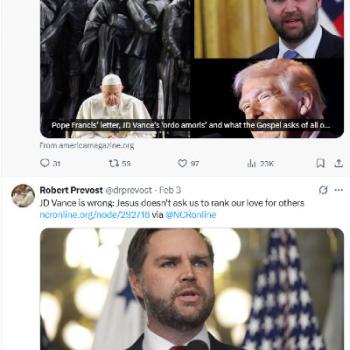Is this a practice that churches ought to practice if their core mission is to be faithful to the Gospel of Jesus Christ? The point is that if these churches do not cooperate to meet the needs of the population they are after and of which they are already comprised, they will put each other out of business some day.
Currently mainline churches are in zero-sum relationship with each other. Sure, they may gather for joint services, which are nice during Lent, but are they entering into the lives of each other in tangible ways to help each other in the midst of dwindling members and budgets? In my very cursory and unscientific inquiries, the answer has been a resounding "no."
Robert Wright suggests two preventatives to entering into a non-zero sum relationship: recognition and trust. Mainline churches need to recognize and understand the kind of relationship they are in with their neighboring churches. This is true not only between churches in different denominations, but churches within denominations that serve the same municipality. After a recognition of the kind of relationship that churches have, they need to learn how to build bridges and trust one another to meet each other's needs. The problem is that many of these churches have long institutional memories sealed up within very old walls that history has made sacred. But is it the space that should be seen immovably sacred, or is the Spirit of God working within people the sacred reality that churches must strive to cultivate first?
If churches are not in win-win, cooperative relationships with each other, they will, as they have in the past, find themselves in zero-sum, win-lose, competitive relationships with one another. Is it the intent of God for us to put each other out of business, or to seek something deeper, something that connects all of us together, namely, a resurrected Christ?
Read other articles in the Changing Church series:
- Changing Church, Changing World
- Are Mainline Denominations Sustainable?
- Can We Please Talk About Sex?
Drew Tatusko is an academic administrator and grant activity director at Mount Aloysius College in Cresson, PA. He also earned the M.Div. and Th.M. degrees from Princeton Theological Seminary where he also was awarded the Fellowship in Practical Theology. He is working on a Ph.D. dissertation in the study of Higher Education from Seton Hall University focusing on secularization and religiously affiliated higher education. He is also a semi-professional drummer and percussionist who has performed all over Pennsylvania, New York City, and New Jersey. He lives in Duncansville, PA. Drew also blogs regularly at Notes from Off Center.





